 15.10.2025 14:14 — 👍 0 🔁 0 💬 0 📌 0
15.10.2025 14:14 — 👍 0 🔁 0 💬 0 📌 0
Antti Oulasvirta
@oulasvirta.bsky.social
Computational models of human behavior. Prof at Aalto University. Group page: http://cbl.aalto.fi
@oulasvirta.bsky.social
Computational models of human behavior. Prof at Aalto University. Group page: http://cbl.aalto.fi
 15.10.2025 14:14 — 👍 0 🔁 0 💬 0 📌 0
15.10.2025 14:14 — 👍 0 🔁 0 💬 0 📌 0

Just presented "WigglyEyes: Inferring Eye Movements from Keypress Data" at Ubicomp/ISWC'25.
It's a method that, given keypress data only, infers how users move their eyes when they type. It uses a user simulator for data augmentation.
dl.acm.org/doi/pdf/10.1...
github.com/quintus0505/...

Ubicomp'25 starting at Dipoli at Aalto. 793 attendees this year
14.10.2025 05:50 — 👍 2 🔁 0 💬 0 📌 0
This is the 2025 cohort of the Ubicomp Doctoral Colloquium. Some of the best PhD students in this area.
We're standing here in front of Dipoli, the beautiful main venue of the conference.
I look forward to hearing about these students as they move on after their PhDs.

On Friday, @ainiputkonen.bsky.social defended her dissertation on modeling decision-making in naturalistic settings with Prof. Adam Sanborn as the opponent. It has been a joy to watch her grow and emerge as a rigorous and original researcher. Congrats Aini!
aaltodoc.aalto.fi/items/cf8487...

Prof. Adam Sanborn giving a talk on Bayesian Brain without Probabilities at Aalto
09.10.2025 12:09 — 👍 4 🔁 1 💬 0 📌 0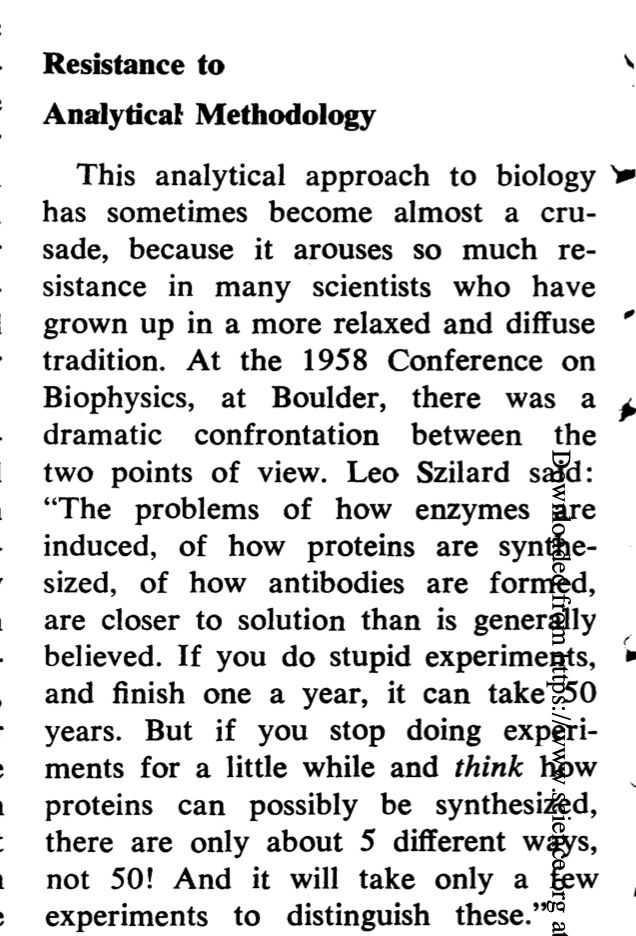
John R. Platt's Strong Inference 1958 (Science) keeps giving. Reading it this morning I found this gem.
To push forward HCI, we need to do the same: sit down, think, and build models that help us tease out the fundamental questions -- and only then run empirical studies. Not the other way around.

The textbook is much more comprehensive than any introductory class needs. That's why we offer recommendations in Preface for courses in different contexts: computer science, design, engineering, social sciences, and specialized courses.
Preface here:
introductiontohci.org
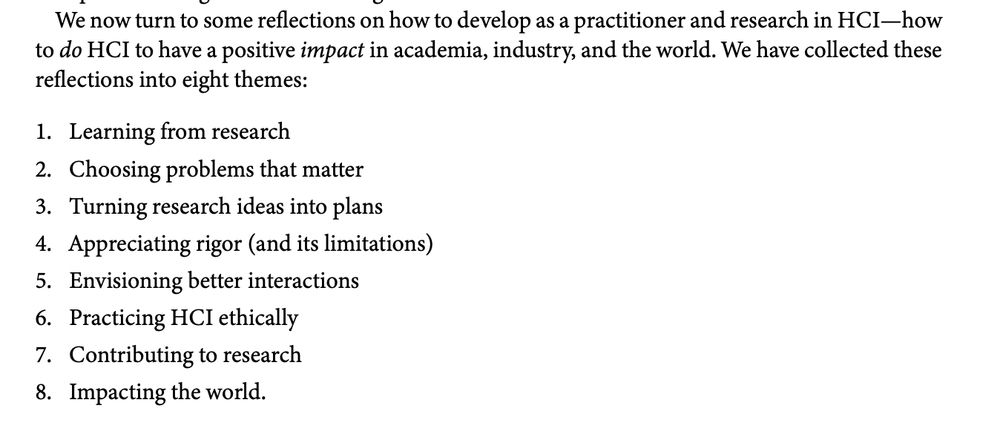
Our new textbook isn't just about the essentials of research in HCI, it also offers guidance to those who entertain HCI as their future careers. My own two favorite bits are on how to read a paper critically and selecting HCI problems that matter.
academic.oup.com/book/60808

Thrilled to share our #UIST2025 research! We investigate how the decomposition principle can improve human feedback for LLM alignment. In a 160-participant study, our tool DxHF increases feedback accuracy by +4.7%
👉 sdq.github.io/DxHF
Furui Tino
@oulasvirta.bsky.social @elassady.bsky.social
@acmuist.bsky.social #uist2025 program is out: programs.sigchi.org/uist/2025/pr...
... lots of interesting papers to look forward to, see you there

With the CHI deadline fast approaching, I'm resharing our lab's resource on making figures for HCI papers: docs.google.com/presentation...
New content suggestions always appreciated. Don't be shy to promote your own work!

OUP now offers not only one mammoth PDF but each chapter as its own file: academic.oup.com/book/60808
25.08.2025 10:07 — 👍 11 🔁 1 💬 0 📌 0
📢The open access version of our book is available now via OUP's site: global.oup.com/academic/pro...
20.08.2025 04:57 — 👍 27 🔁 9 💬 0 📌 0OA version out now: global.oup.com/academic/pro...
19.08.2025 08:11 — 👍 2 🔁 0 💬 0 📌 0The OA version will be available next week via OUP. I'll add that link on the book's homepage as soon as it's out:
introductiontohci.org
And perhaps what makes me proudest: the book is free.
While open access has gained momentum in HCI, it has largely focused on articles, not educational resources. We hope this open access book promotes equity, especially in low-resource settings, and accelerates the uptake of HCI’s findings.
What excites me most is its focus on the *enduring principles* of HCI; its core methods, concepts, theories, and models. While many books approach HCI primarily as a craft, we set out to go deeper. Our goal was to welcome students into the rich intellectual world of HCI research.
31.07.2025 11:53 — 👍 2 🔁 0 💬 1 📌 0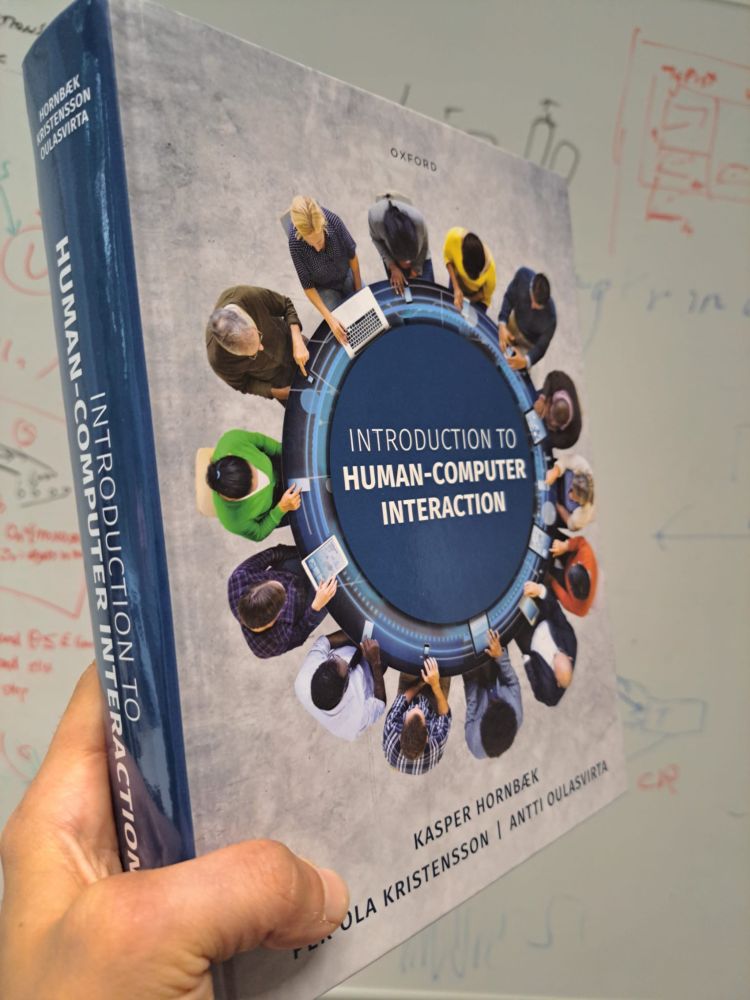
It's amazing to have the book in my hand now, after several years of working on it with Kasper and Per Ola.
In a nutshell, it's a new textbook for introductory-level HCI courses:
✅ 10 parts, covering the whole HCI process
✅ 864 pages and 1.9 kgs
✅ Open access (!)
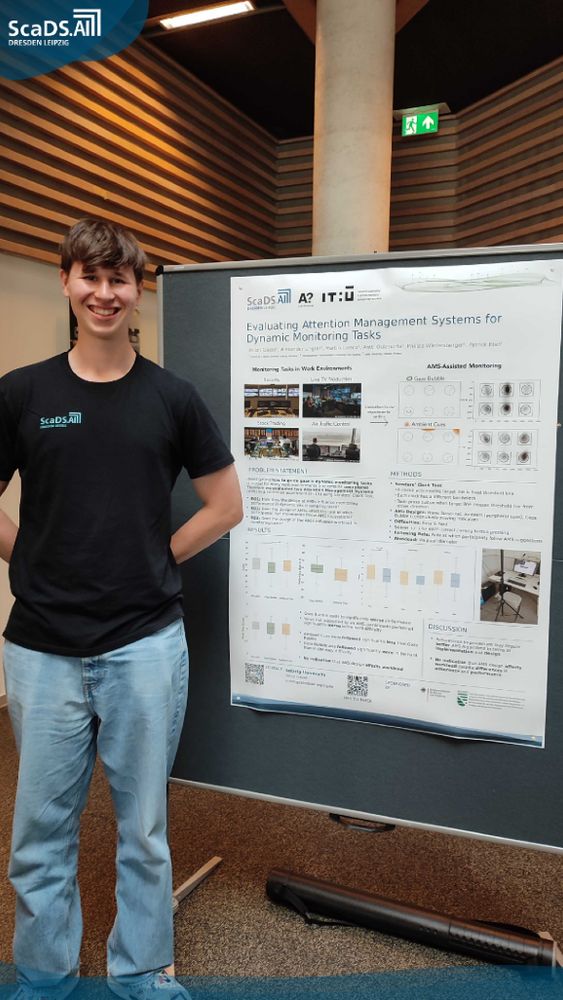
Smiling young man standing next to a poster titled "Evaluating Attention Management Systems for Dynamic Monitoring Tasks" at a conference.
🏆Anton Gasse, Alexander Lingler(@ituaustria.bsky.social), Martin Lorenz, @oulasvirta.bsky.social(@aalto.fi), @philwintersberg.bsky.social(@ituaustria.bsky.social) & @patebel.bsky.social won the People’s Choice Award for Best Poster @chiwork.bsky.social 2025 in Amsterdam!
🔗https://shorturl.at/D5JDO
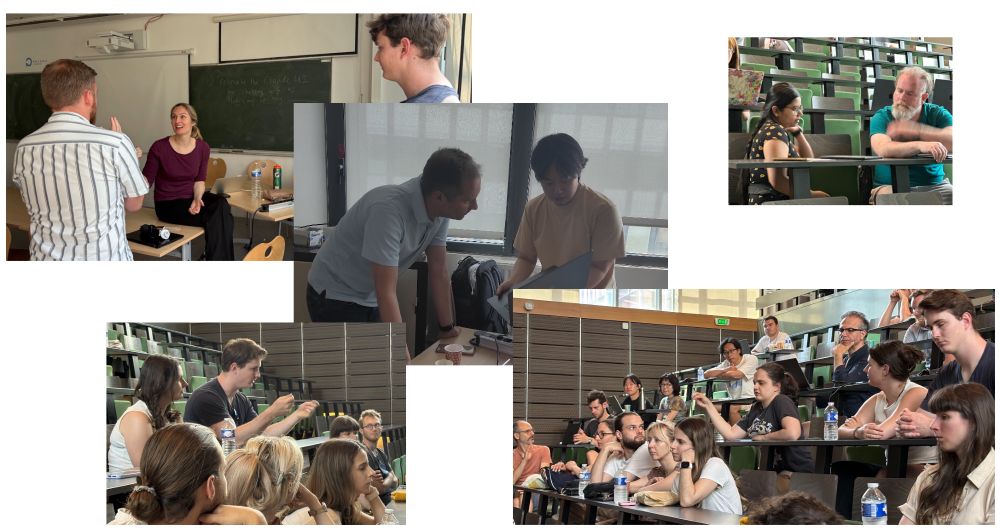
We had a lovely summer school last week in Paris. Thirty amazing students and postdocs, a week full of keynotes and hands-on lectures on computational methods. State-of-the-art as call as classical topics, ranging from LLM agents to Bayesian inference cixschool2025.isir.upmc.fr
23.06.2025 11:08 — 👍 1 🔁 0 💬 0 📌 0
I work in the best university in the world, less than 3 hours from my rural hometown, yet superstar students travel here from all over the world… if we keep treating them badly, will centers of excellence move elsewhere?
"If my kids excel, will they move away?"
jeffreybigham.com/blog/2025/wh...
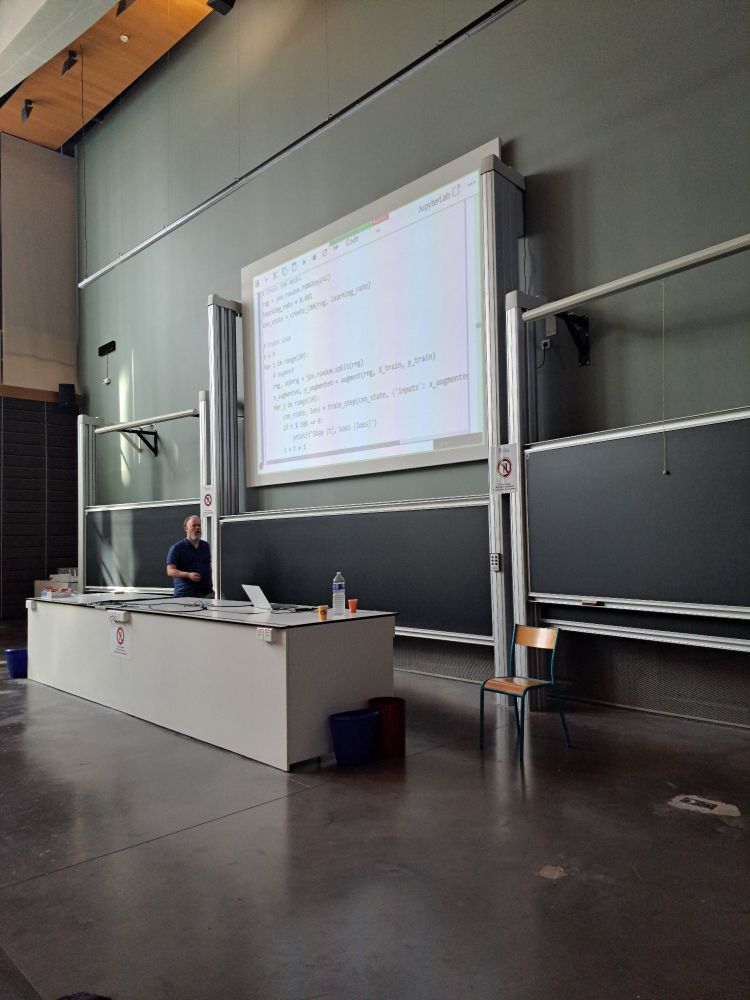
John Williamson lecturing about simulator-bases inference at the Comp Int summer school cixschool2025.isir.upmc.fr
19.06.2025 08:07 — 👍 1 🔁 0 💬 0 📌 0Sounds like an amazing project. Big congratulations Albrecht!
17.06.2025 10:36 — 👍 0 🔁 0 💬 0 📌 0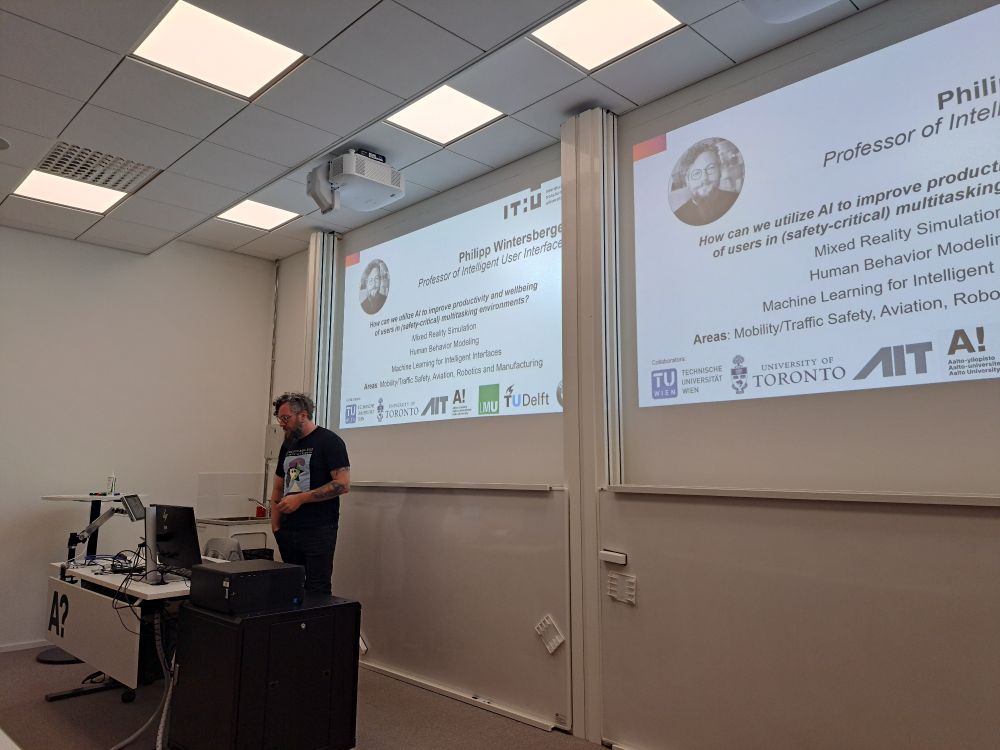
Philipp Wintersberger giving a talk on multitasking and human-AI interaction at Aalto
16.06.2025 08:06 — 👍 2 🔁 0 💬 0 📌 0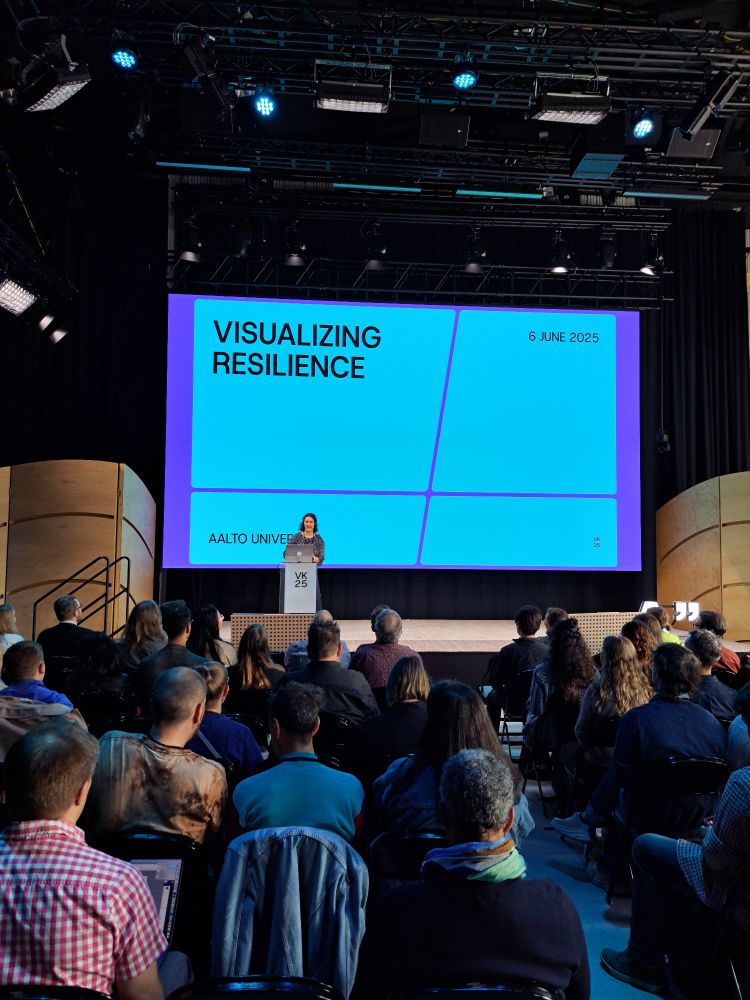
Visualizing Knowledge 2025 starting at Aalto
06.06.2025 06:17 — 👍 1 🔁 0 💬 0 📌 0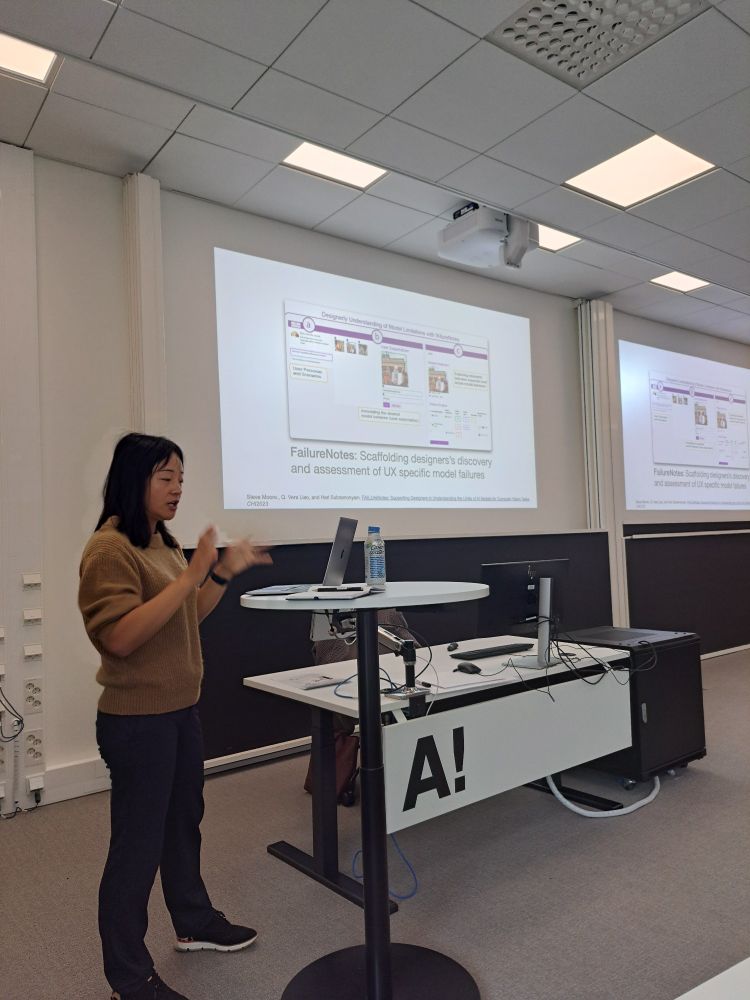
FailureNotes help designers discover how AI model failure affects interaction downstream:
14.05.2025 09:35 — 👍 1 🔁 0 💬 1 📌 0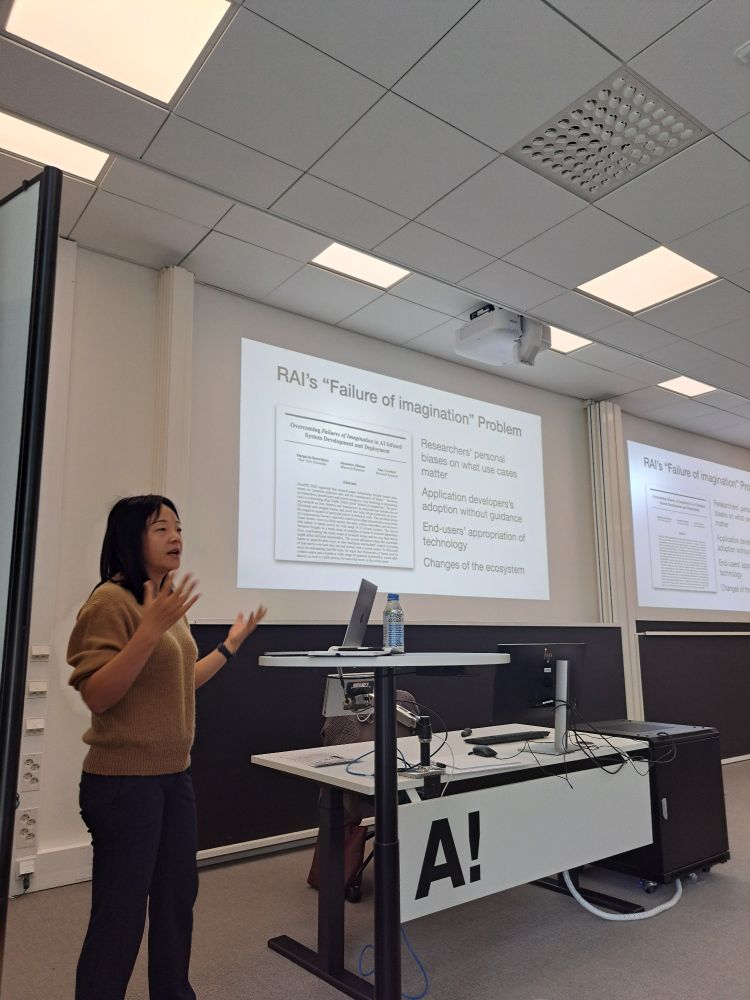
Vera gives a compelling argument why this is a very hard problem. It's often impossible to imagine the critical situations where AI fails
14.05.2025 09:28 — 👍 0 🔁 0 💬 0 📌 0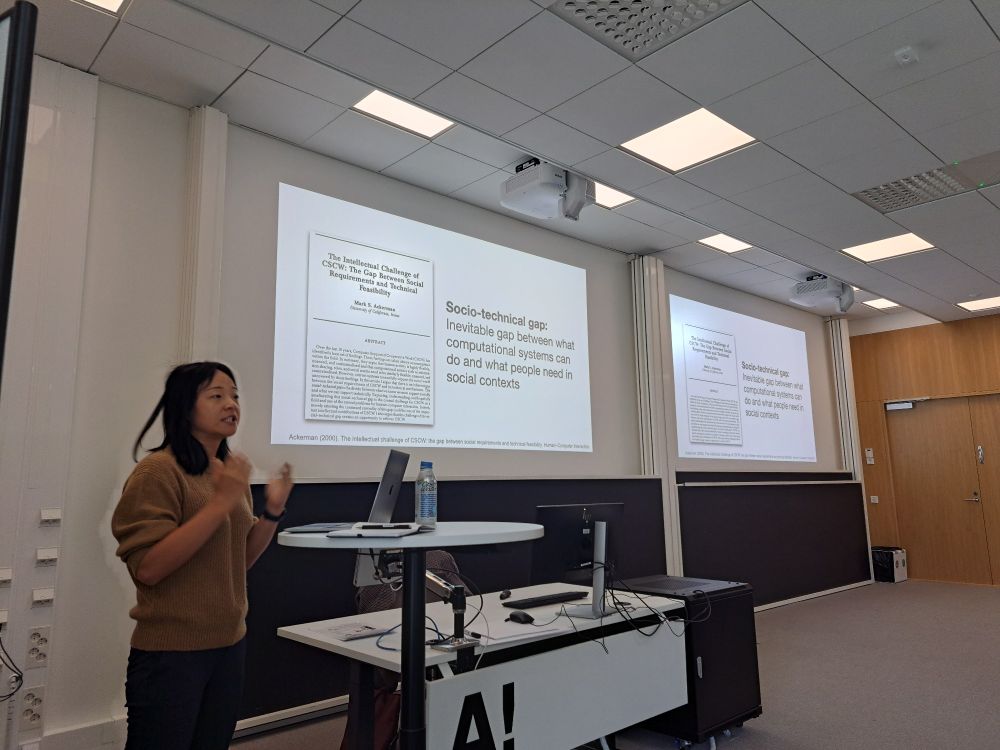
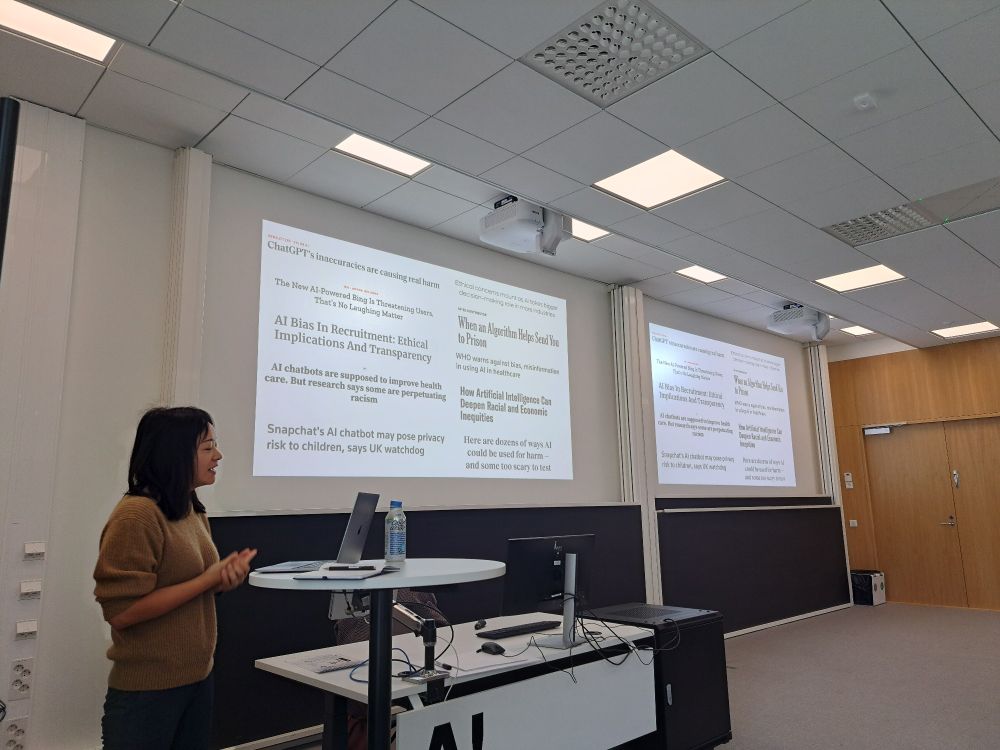
Vera Liao giving a talk on the AI sociotecnical gap at FCAI / Aalto
14.05.2025 09:06 — 👍 8 🔁 0 💬 2 📌 0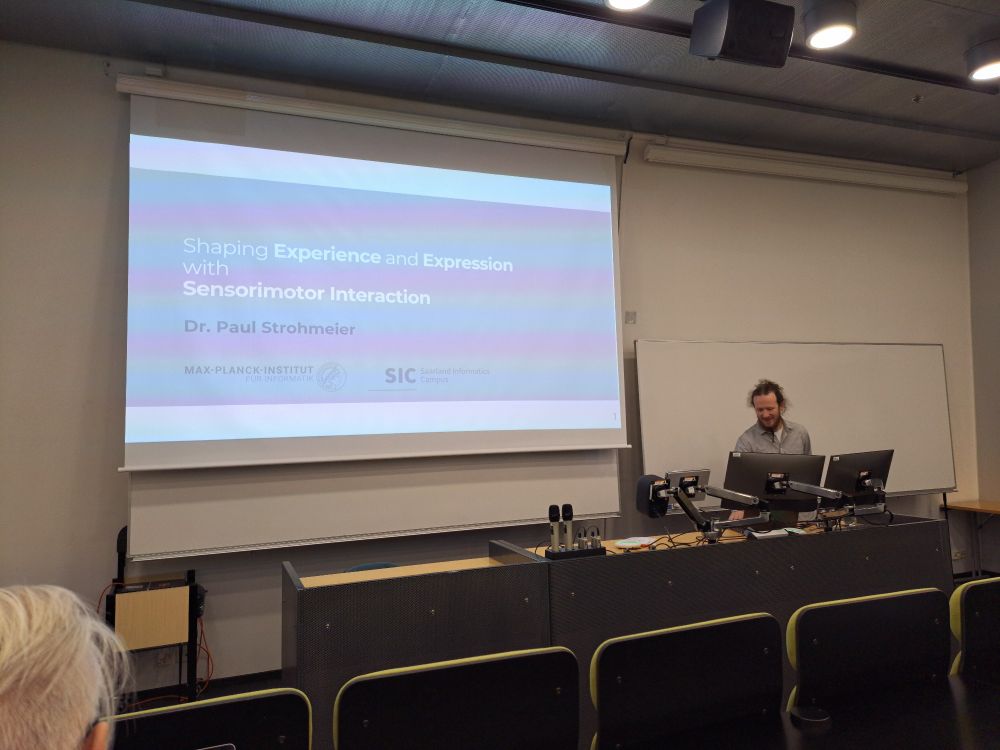
Paul Strohmeier giving a talk at Aalto
13.05.2025 07:02 — 👍 2 🔁 0 💬 0 📌 0